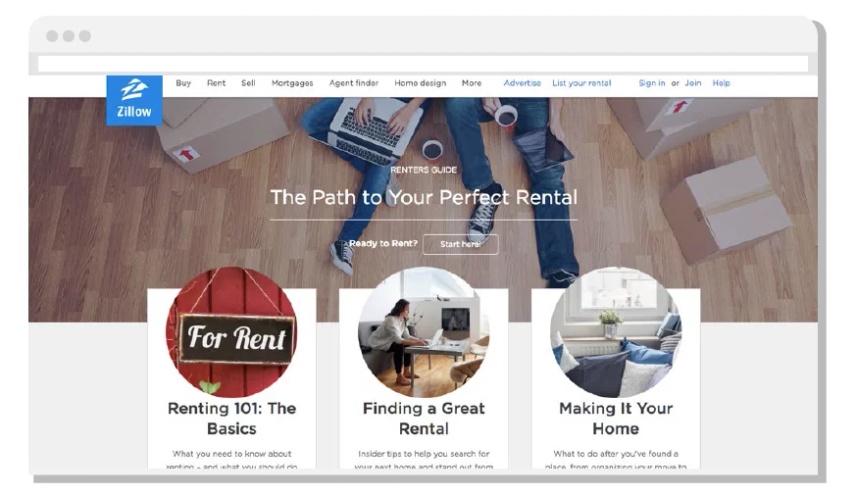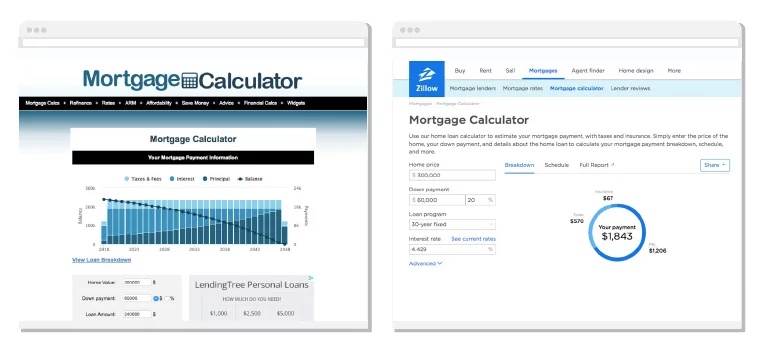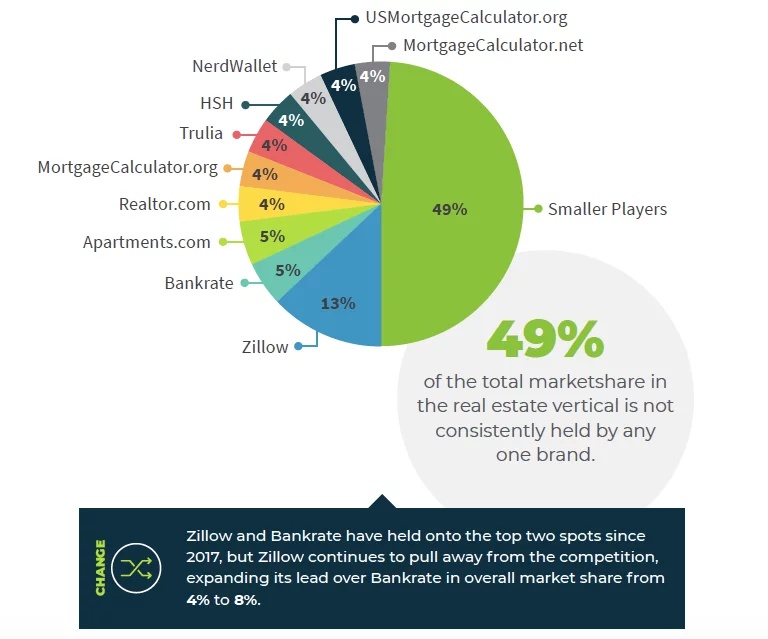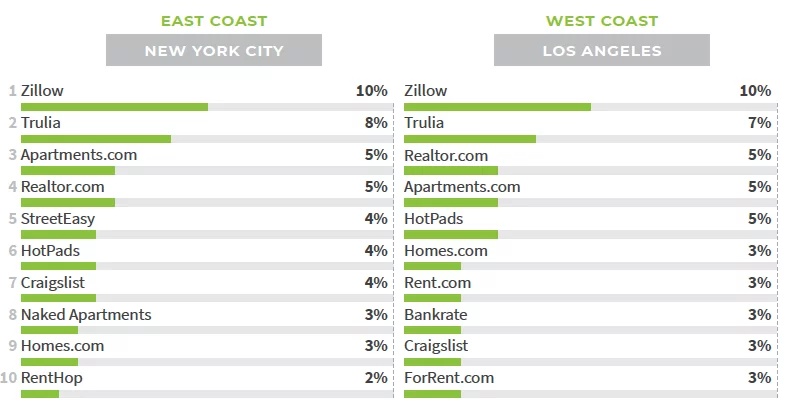5 Essential Real Estate SEO Tips
Which real estate SEO tips and strategies are agents and publishers using to dominate search visibility? How can you adopt them for your own business?
How do real estate websites, agents, and publishers use content to rank higher? What are their real estate SEO tips and strategies, and how can you adopt them for your own business and claim your market share in the future?
Tackling SEO for real estate is difficult and requires the ideal blend of broad content and hyper-local information. So we looked at the brands and companies that dominated the real estate SEO space and compiled their best strategies and real estate SEO tips to gain organic market share. But first, let's cover the basics.
What is SEO for real estate agents?
SEO is an acronym for search engineSearch Engine
A search engine is a website through which users can search internet content.
Learn more optimization. Real estate search engine optimization efforts focus largely on winning at local SEO. Local SEO strategies rely on area-specific content and pages to increase geographic relevance.
SEO tips and strategies for real estate agents
Here are the strategies we recommend for any SEO working in the real estate space.
1. Create multiple pieces of content around the real estate topic with different key terms
Step one to conquer real estate SEO? Create numerous pieces of content on the same topic. The more content you create, the more opportunities you have to target your desired keywords. For example, “Home” and “House” as well as “Rent” and “Rental” searches both have large search volumes with different results.
Let’s say you’re trying to rank “homes for rent.” Google won’t recognize you as an authority in this matter if you only have a post about it.

Here’s how to start building the most proven real estate SEO strategy, Content Hubs:
- Create a series of blog posts with long-form, in-depth content on a topic.
- Consider customer needs beyond the decision to rent. In our study, we saw real estate SEO powerhouses like Zillow engage in this strategy to capture customers at every stage of the customer journey.
- Expand content that helps customers overcome certain challenges based on what they are looking for online.
For brands positioning themselves as experts in the real estate game, quality content is crucial, but quantity is important as well: as you find keywords based on what your customers are looking for, you need to create enough great content to give you the ability to target those keywords.
2. Implement local SEO tips
Google operates specialized search engines that focus on local content, and there is a huge opportunity to get traffic from local searchers. According to our report, only New York City has established, competitive city-specific sites dominating market share.
This is in line with the “big fish-small pond” mentality. Google and the other search engines want to provide users with the most relevant and useful information, especially in the case of real estate SEO, which means returning local results. Be local and be useful by creating content around your city's:
- Landmarks, attractions, points of pride
- Sports teams
- Restaurants and shopping
- Schools and neighborhoods
Also, be sure to create a Google Business Profile and keep the information updated and optimized to help your services appear in local searches for real estate-related terms.
3. Provide online real estate calculators
This type of helpful content is in high demand, with the highest search volumeSearch Volume
Search volume refers to the number of search queries for a specific keyword in search engines such as Google.
Learn more in the entire vertical (with four dedicated calculators in the top ten alone). This mid-stage content gives real estate companies the opportunity to engage with consumers earlier in the customer journey.

People love these kinds of tools. Here are some of the top calculator-related real estate search terms based on monthly search volume (MSV) in 2023:
- Mortgage payment calculator - 165K MSV
- Simple mortgage calculator - 40.5K MSV
- Mortgage loan calculator - 60.5K MSV
- How much mortgage can I afford - 40.5K MSV
- Home loan calculator - 90.5K MSV
- Free mortgage calculator - 14.8K MSV
- FHA mortgage calculator - 6.6K MSV
- Real estate calculator - 2.9K MSV
Numerous sites enable you to install such calculators on your website; start by searching “Install a free mortgage calculator” and proceed from there.
4. Align yourself with reputable publishers
Contribute content, retarget, or advertise on publishers that have high visibility in your categories.
By contributing content to reputable publishers within the real estate industry, you are helping to ensure that some of their brand authority will rub off on you. Not only does it borrow from the “You are the company you keep” adage, but Google also views the backlinks you receive as a trust signal that you’re an authority in your niche.
The top-performing sites, according to our report, are:

5. Make sure your site is mobile-friendly
Mobile is changing the way brands interact with potential buyers and renters. 72% of buyers have searched for a home on mobile, and younger buyers are particularly likely to rely on smartphones and tablets. In fact, 58% of millennial home buyers found their home on a mobile device.
On the rental side, 67% of renters use mobile devices to search for apartments, and just over half of all apartment searches take place on smartphones.
Looking at customer preferences and behavior, it is clear that brands need to ensure that their sites are optimized for all major devices. In addition, Google is moving to a mobile-first index that prioritizes the mobile version of a brand’s website.
We have compiled a snapshot of the mobile leaders in two major markets in the US: New York and Los Angeles.

Love these real estate SEO insights?
Check out our full report to see which brands and publishers are dominating different business lines in real estate SEO, as well as deep dives into specific brand strategies, the real estate customer journey, and tactical guidance.







